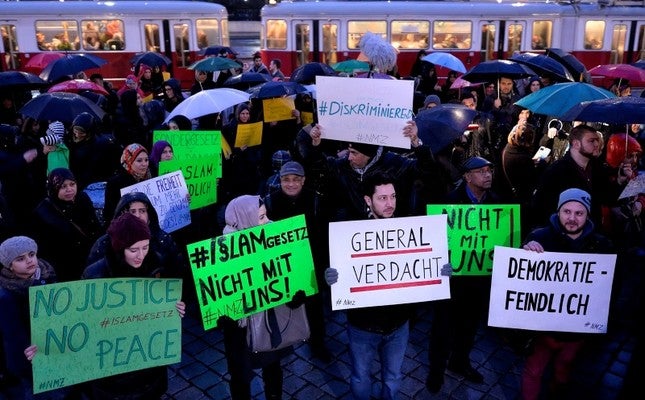
How Islamophobic Politics Shapes People’s Attitudes in Austria
From December 2017 to May 2019, Austria was governed by a coalition of the centrist-right Peoples Party (OVP) and the right-wing extremist Freedom Party of Austria (FPO). While the latter has been the traditional stronghold of an anti-Muslim agenda, the former only coopted this agenda more recently, under the leadership of Sebastian Kurz. What followed was the implementation of several laws that specifically targeted Muslims: a ban of the hijab for kindergarten and elementary school students and a shift in the security politics vis-à-vis Muslim organizations. The coalition government also expanded an act that banned the symbols of Al-Qaida and ISIL. Not the act also bans the symbols of the Turkish nationalist MHP and the Muslim Brotherhood. The problem here is that this list can be expanded at any time by the interior minister. Austria thus became a paradigm of institutionalized Islamophobia during this period. But what is the impact of such a government with a strong anti-Muslim agenda and anti-Muslim politics on the people? How do these policies impact the attitudes in the respective society? Austria provides a great example for discussion.
Wolfgang Aschauer, a sociologist at the University of Salzburg, published a study in 2018, which he measured the extent of anti-Muslim sentiment in Austrian society via the International Social Survey Program (ISSP). Some questions on the survey reflected those which had already been asked for previous quantitative surveys. Additional questions were asked to reflect the political debates that accompanied the anti-Muslim legislation during the time the right-wing parties were in power.
The results of the World Values Survey in 1999 and 2008 suggest that anti-Muslim sentiment and the rejection of Islam and Muslims have always been relatively widespread in Austrian society, especially compared to other European societies. For example, in 2008, 31% of Austrian interviewees had said that they would not want Muslims as neighbors, ranking second highest among 15 states, after Cyprus with 36%.
The findings of Aschauer’s new study are even more alarming. They indicate that nearly 90% of Austrians hold the belief that Muslims have to adapt to Austrian culture. Meanwhile, 75% of the population believes that Islam provides no cultural enrichment and 60% fear that terrorists are among the Muslims in Austria, despite the fact that there have been no Muslim terrorist attacks on Austrian soil. Instead, Austria has a history of violence stemming from right-wing groups and individuals. A large majority, 70% of Austrians, are convinced that Islam does not fit into the Western world.
What is especially striking is the high rate of popular approval, 79%, of more intense “government observation” of Islamic communities. What preceded this survey was a political discourse that targeted Muslim religious and educational institutions. They have been framed as a symbol of Islamist counter-society in the last years. Especially in 2015, Islamic kindergartens have become a target of the political discourse. Sebastian Kurz called for surveillance and closure of Islamic kindergartens. The public acceptance of surveilling Muslim communities thus reflects this political trend. Kurz criminalized Islamic kindergartens and the hijab in educational institutions. Together with the far-right, he banned the Hijab in kindergarten and elementary school. More than 65% of the respondents to Aschauer’s study agreed that Muslim girls should not wear hijabs in school. It is significant that characteristically Islamic attire was subjected to legal restrictions but that of other religious communities, such as the Jewish kippah, was not.
The survey results point to highly problematic attitudes. For example, about 45% of the interviewees explicitly supported the statement “Muslims should not have the same rights as everyone in Austria.” This is alarming, given that the Second Republic of Austria regards itself as a post-Fascist country that abides by human rights including freedom of religion. Also, around 50% of the respondents are of the opinion that “mosques should not be built in Austria because churches in Muslim countries are not accepted.” But to the contrary, this is only true in perhaps three out of 50 Muslim-majority countries.
Fifteen months of a far-right government in Austria have been very damaging for Muslims. Following new elections in September this year, the country’s strongest political party, the Peoples Party, is currently negotiating with the Greens, which became fourth strongest in recent national elections, regarding a new government. Whatever happens, the new government will play a major role in shaping the future of attitudes of the Austrian society vis-à-vis the country’s Muslim population. While it would take a lot of political capital to change the anti-Muslim policies, the main question now is how important Muslim issues will be for the next Austrian government.

 Search
Search